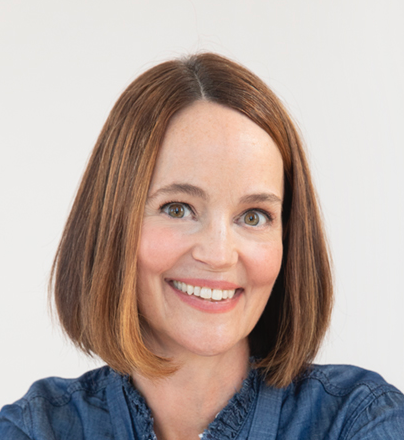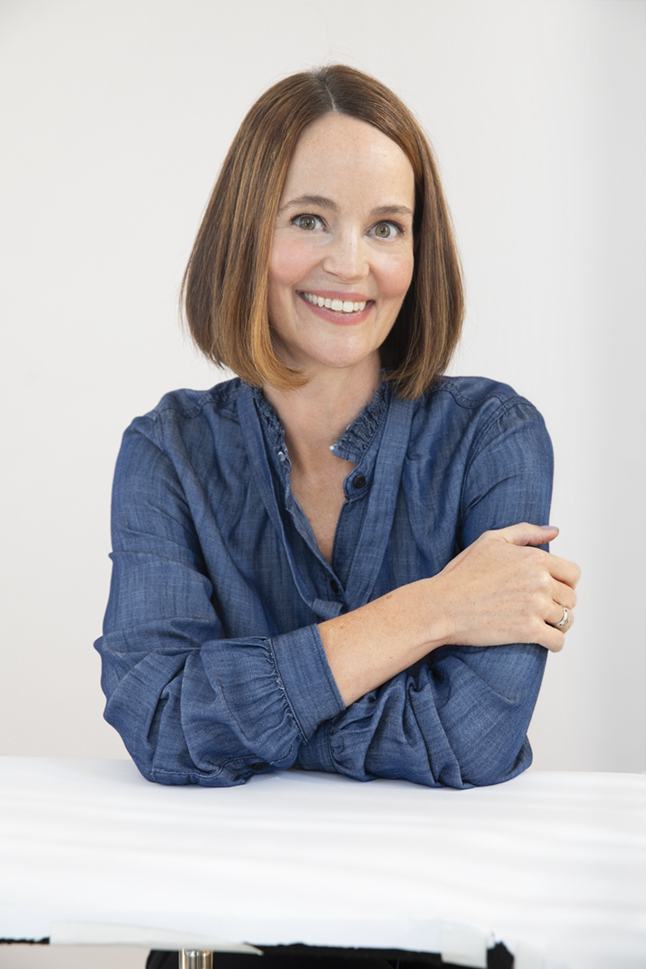When you have the opportunity to ask some of the most interesting people in the world about their lives, sometimes the most fascinating answers come from the simplest questions. The Thrive Questionnaire is an ongoing series that gives an intimate look inside the lives of some of the world’s most successful people.
Leslie Yazel is Editor-in-Chief of Real Simple, where she oversees the content and editorial operations of Real Simple including Real Simple’s brand extensions and licensing products. Prior to joining Real Simple in October 2016, Leslie held senior leadership roles at Cosmopolitan, The Wall Street Journal, and The Washington Post.
In her Thrive Questionnaire, she opens up about her family-first morning routine, her love for decluttering, and the “five-year rule” she channels when feeling overwhelmed.
TG: What’s the first thing you do when you get out of bed?
LY: Check on my daughter, Jemma, who is 8, and also on the guinea pigs, Peanut and Cocoa. Jemma always makes me smile and the guinea pigs’ love for parsley sprigs is inspiring. I had guinea pigs growing up and we recently got some for our daughter. Easy pets!
TG: What gives you energy?
LY: Clean surfaces. There’s a reason I’m the editor of a magazine about organizing and cleaning and it’s because that’s always the goal. Clutter drags me down. I feel a boost when things are tidy or at least tidy-ish.
TG: What daily habit or practice helps you thrive?
LY: I listen to WNYC public radio in the morning. I want to immediately know what’s going on — I was a newspaper editor for most of my career — but I don’t like to face a screen first thing in the morning.
TG: Name a book that changed your life.
LY: Lives of the Monster Dogs by Kirsten Bakis. I read it ages ago when I was taking a great fiction writing class taught by Alex Chee — It was reissued a couple years ago — and it just seemed so other. You have to suspend disbelief to a huge degree. It yanked me out of costume dramas and into worlds like the X-Men then and later Game of Thrones. Instead of escaping into a different time period, you’re escaping into a world where through a dark series of events there’s a breed dogs who talk, they walk, they’re wealthy New Yorkers, and they’re doomed. Combine that with Bakis’s storytelling and it’s wonderful. I admire people who make alternative realities with their art.
TG: Tell us about your relationship with your phone. Does it sleep with you?
LY: No, never. The phone has a charging shelf far from the bedroom. I don’t feel truly relaxed and creative and calm if I don’t take a break from the phone. It’s the thing that surprised me the most when I became editor of Real Simple: Readers would DM me on Instagram and tell me how they use the magazine to escape their phones.
TG: How do you deal with email?
LY: I do a lot of forward-delegate-delete. I get a lot of email, but only a small fraction is truly relevant to my work mission. I have a sharp team that I trust, so I’ll say, “Is this product right for our readers?” or “Have you heard about this idea, should we include?” and for the most part I give them permission to make the call and proceed their way.
TG: How do you prioritize when you have an overwhelming amount to do?
LY: Sometimes I do the five-year rule. Will it matter in five years if I do this task that will lead to achieving this goal? I also have a list of five priorities for the year on the flannel bulletin board to the left of my monitor at the office. If a task pertains to one of those goals, it gets priority. So I guess I have a rule of fives.
TG: You unexpectedly find 15 minutes in your day, what do you do with it?
LY: Check in with the hubs on phone or text. Jeremy is the TV editor at the New York Times and often our time together is in front of the television (I don’t consider TV a guilty pleasure; it’s just a pleasure!) or doing the child logistics thing. So sometimes it’s good in a relationship to check in for no reason so the other person knows they’re loved at 2:15 p.m. on a random Thursday out of the blue.
TG: When was the last time you felt burned out and why?
LY: This happened more during my newspaper days and it helped that I had an editor who would remind me that “We’re not ER docs.” No one is going to die if I don’t get this last source on the phone before deadline. But it sometimes felt that way. It’s easy to lose perspective; we all do it.
TG: When was the last time you felt you failed and how did you overcome it?
LY: I moved to London after college convinced I could find a junior reporting job at a major newspaper there. I got meetings but no assignments. I felt like a failure and I needed a proper job to support myself. I ended up working for British trade magazines writing about technology, and those jobs led to every other opportunity I’ve gotten. I try to tell recent college graduates that the road can be winding and just to try and do things you enjoy that pay the rent.
Follow us here and subscribe here for all the latest news on how you can keep Thriving.
Stay up to date or catch-up on all our podcasts with Arianna Huffington here.


